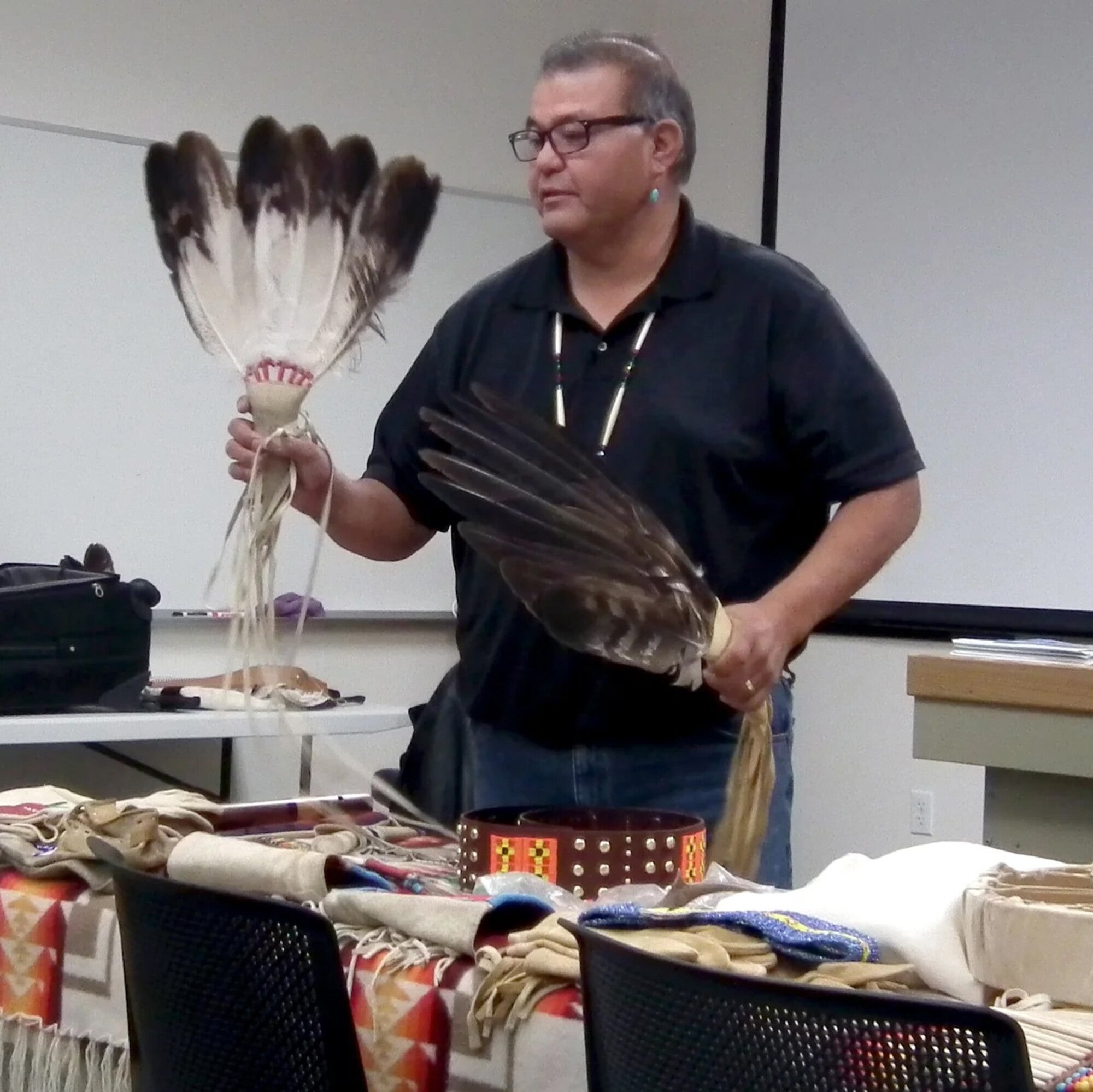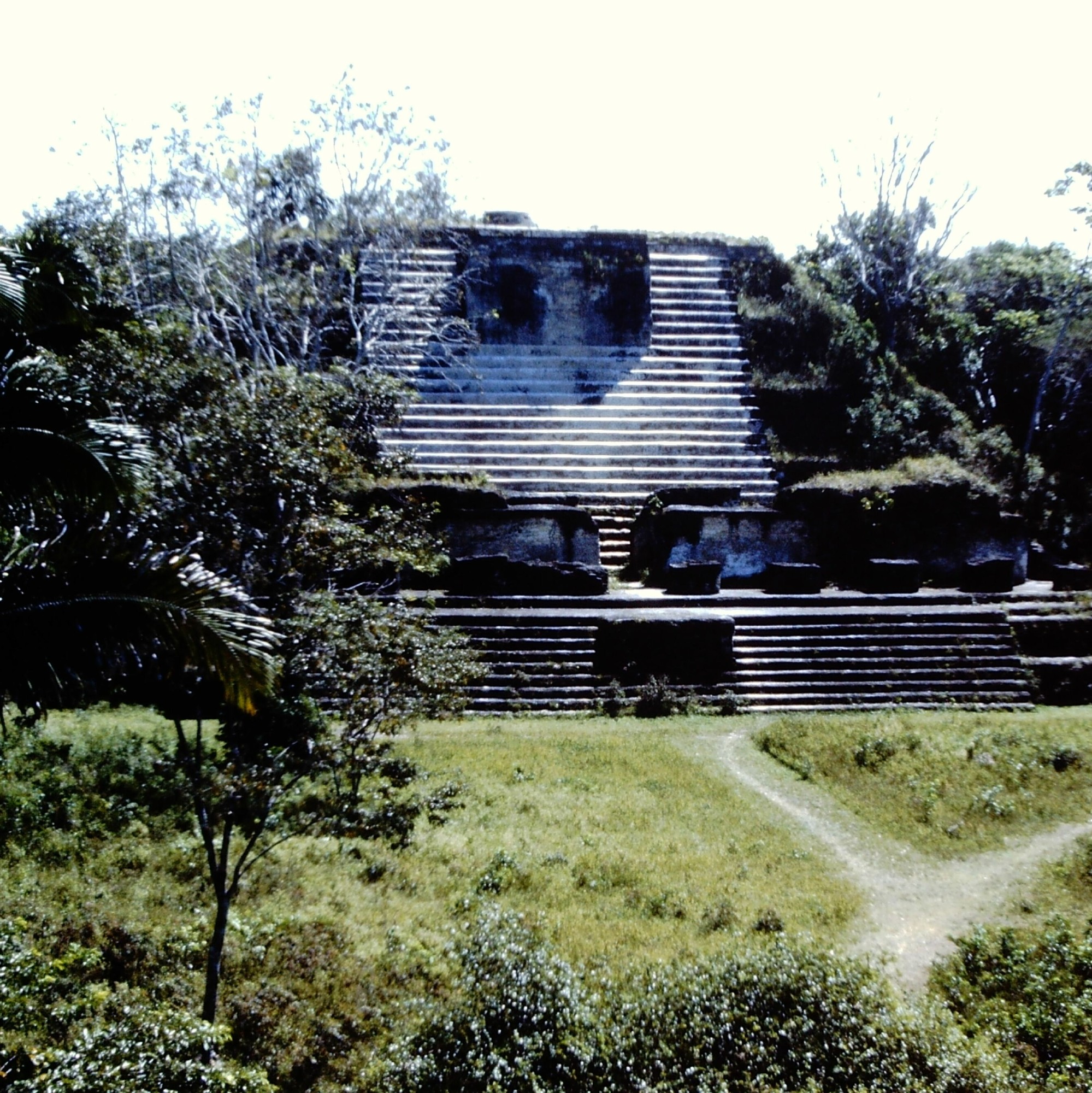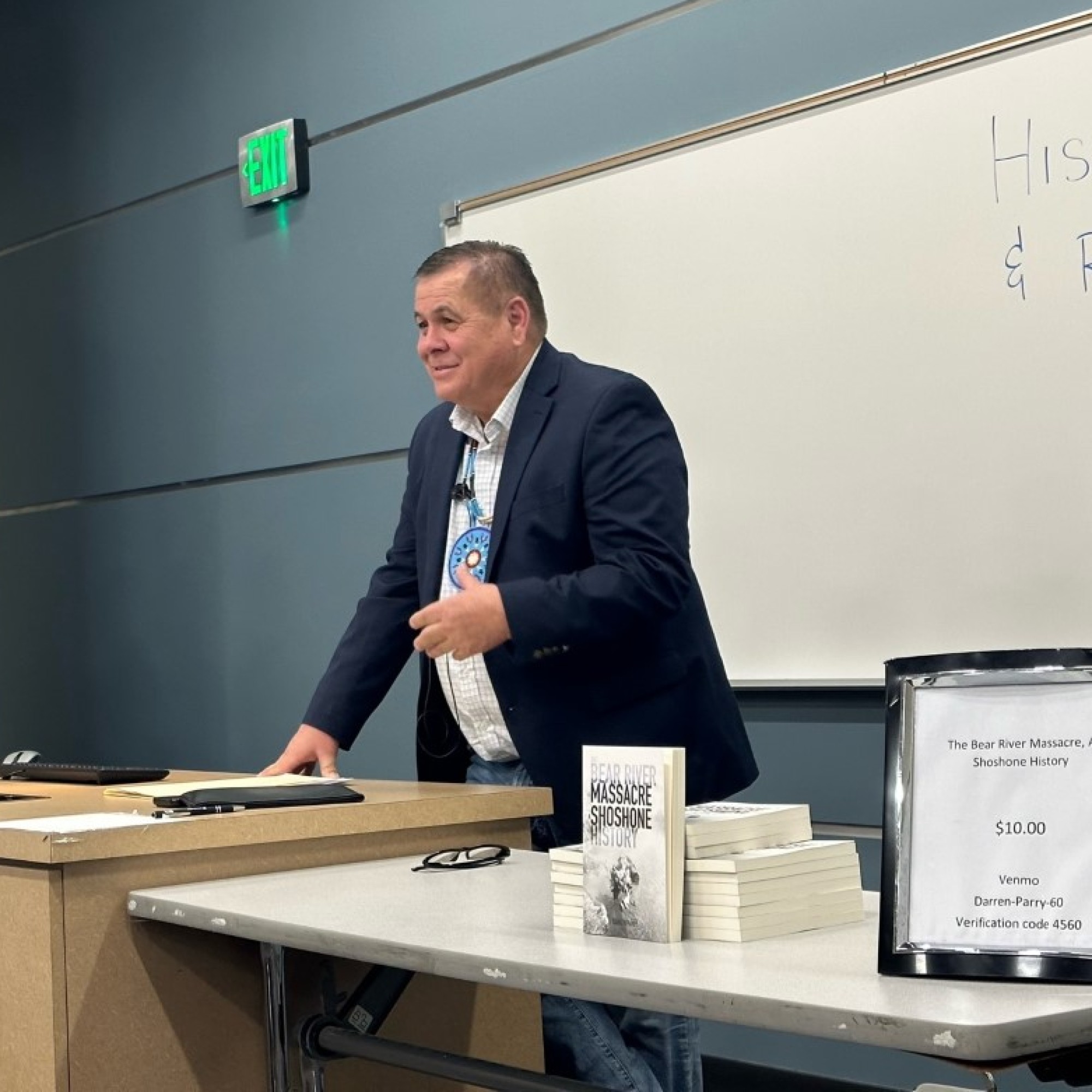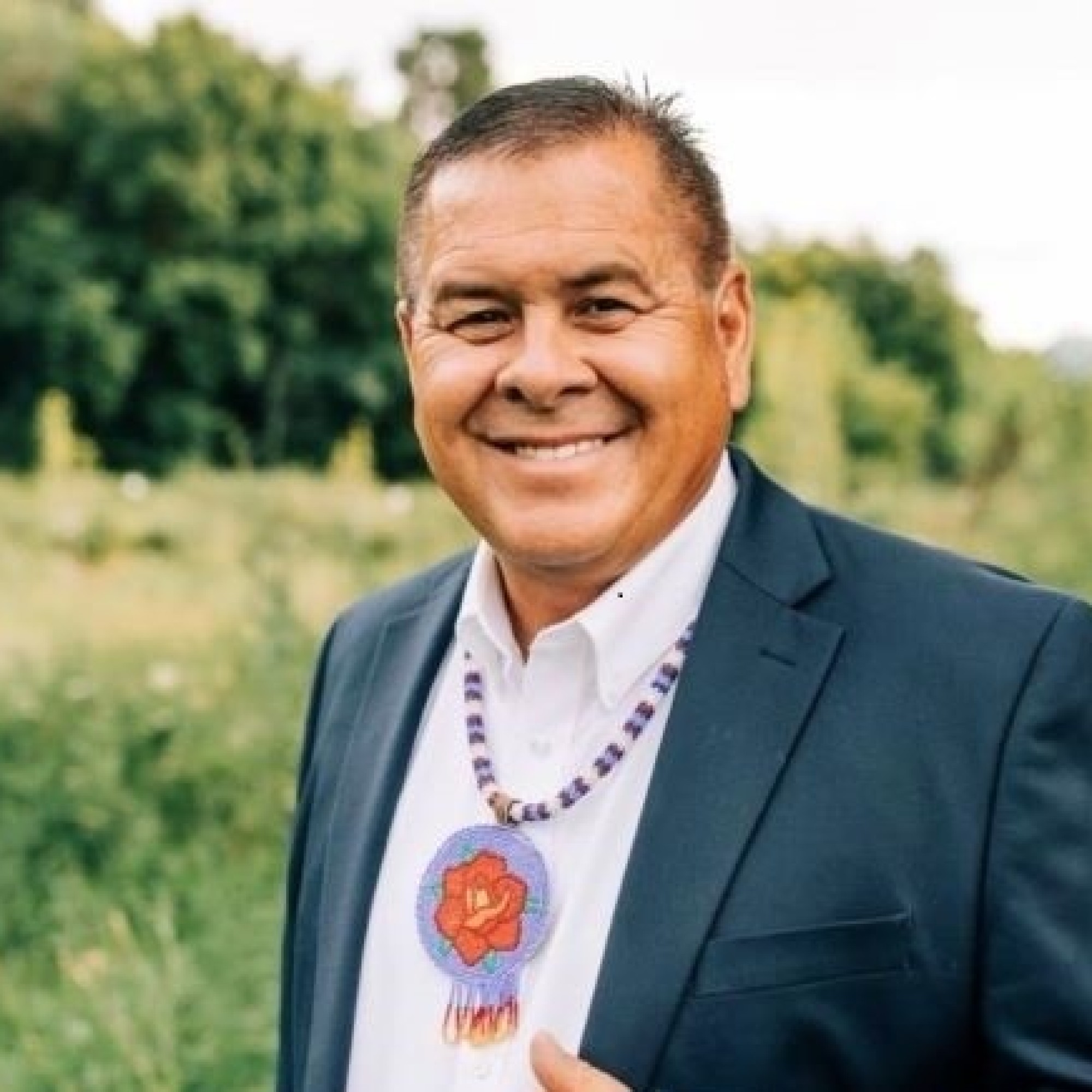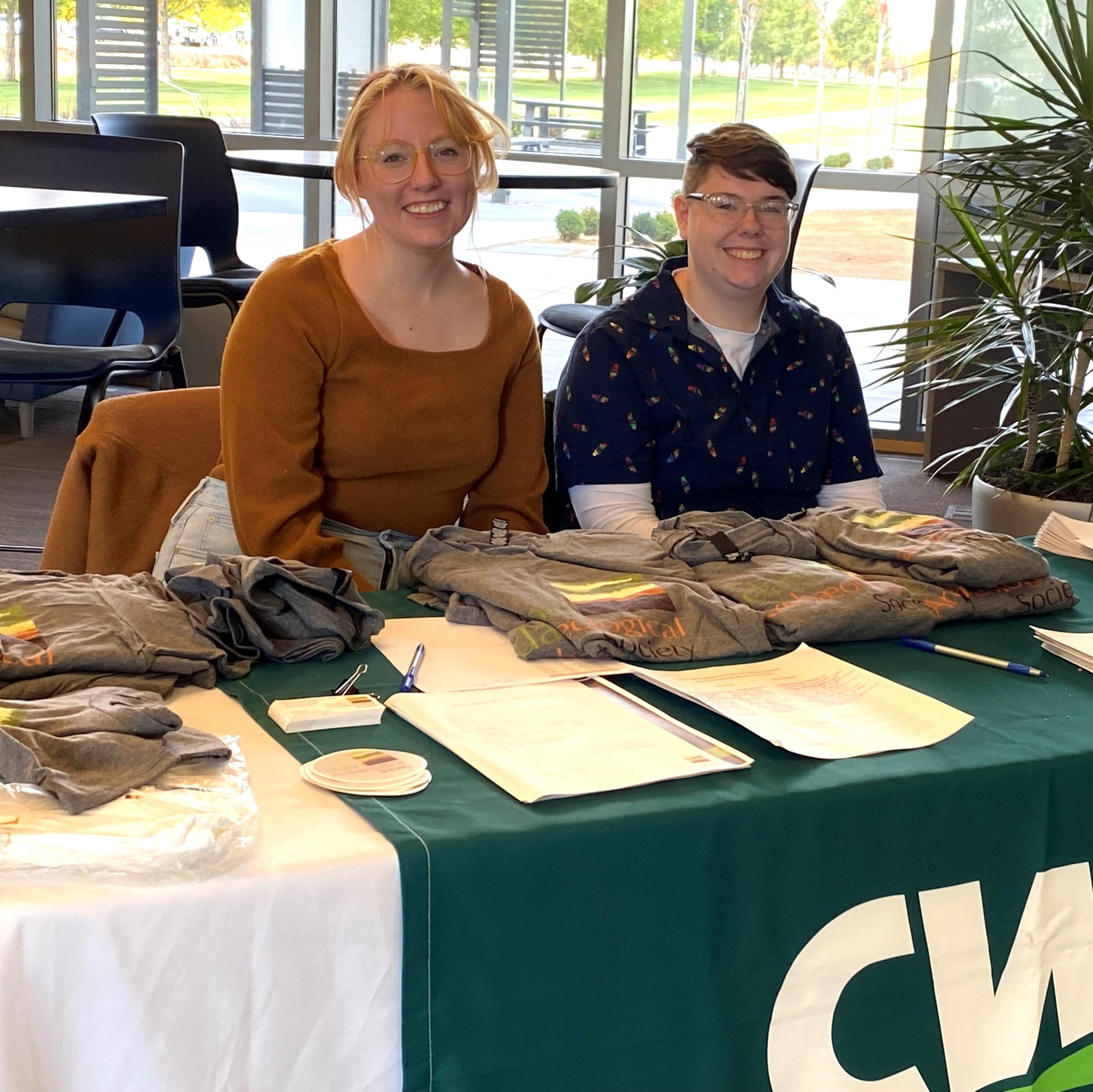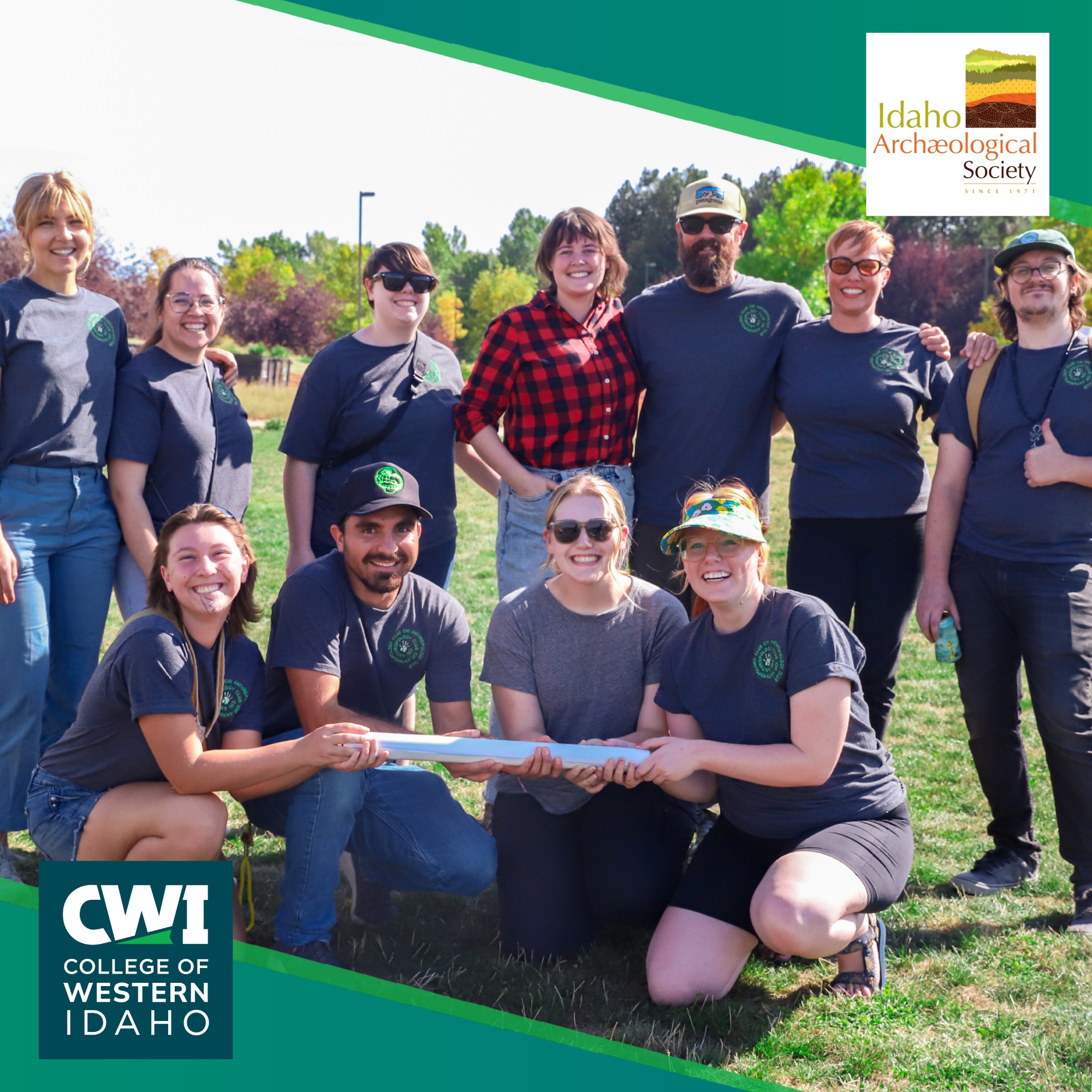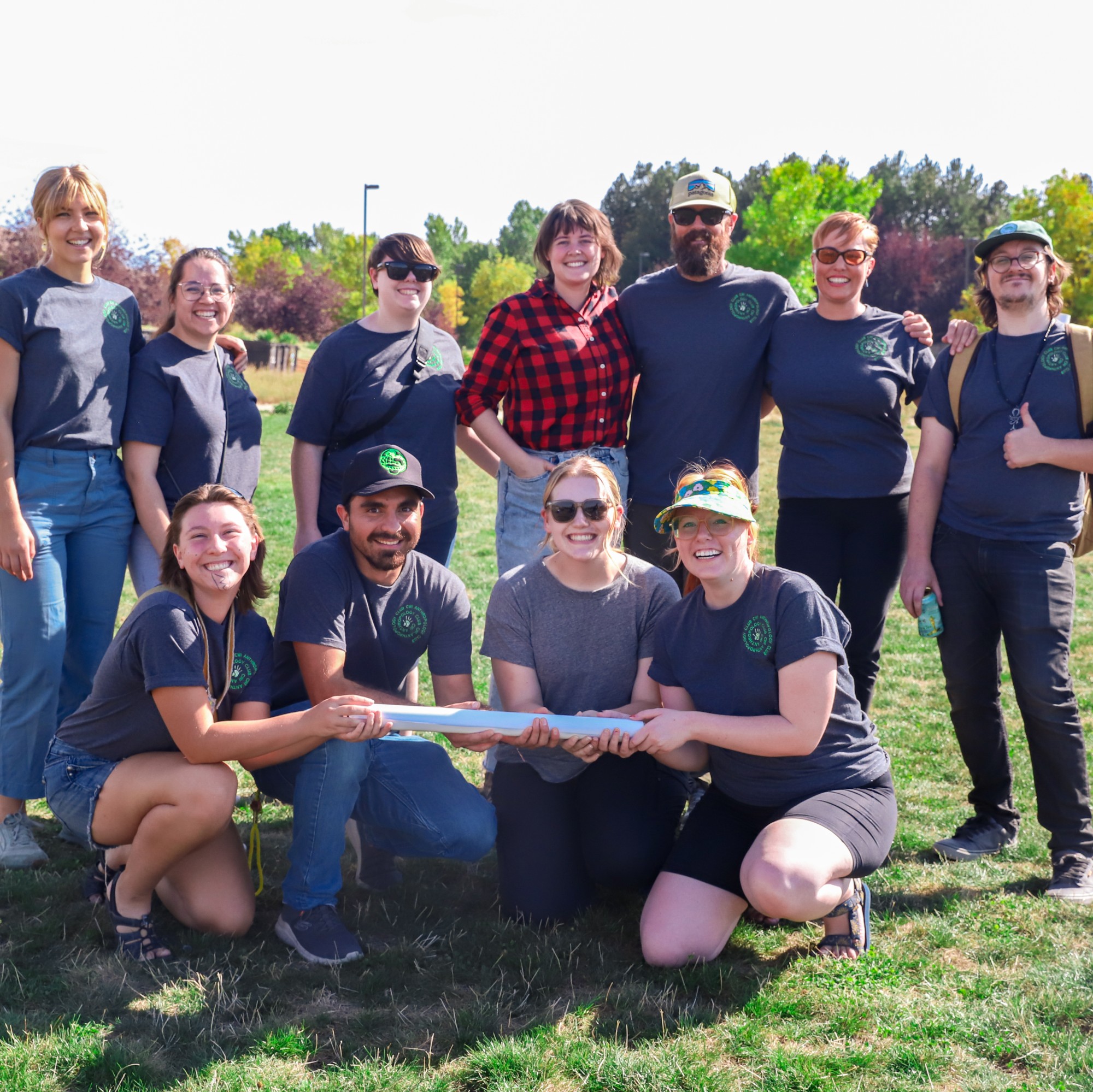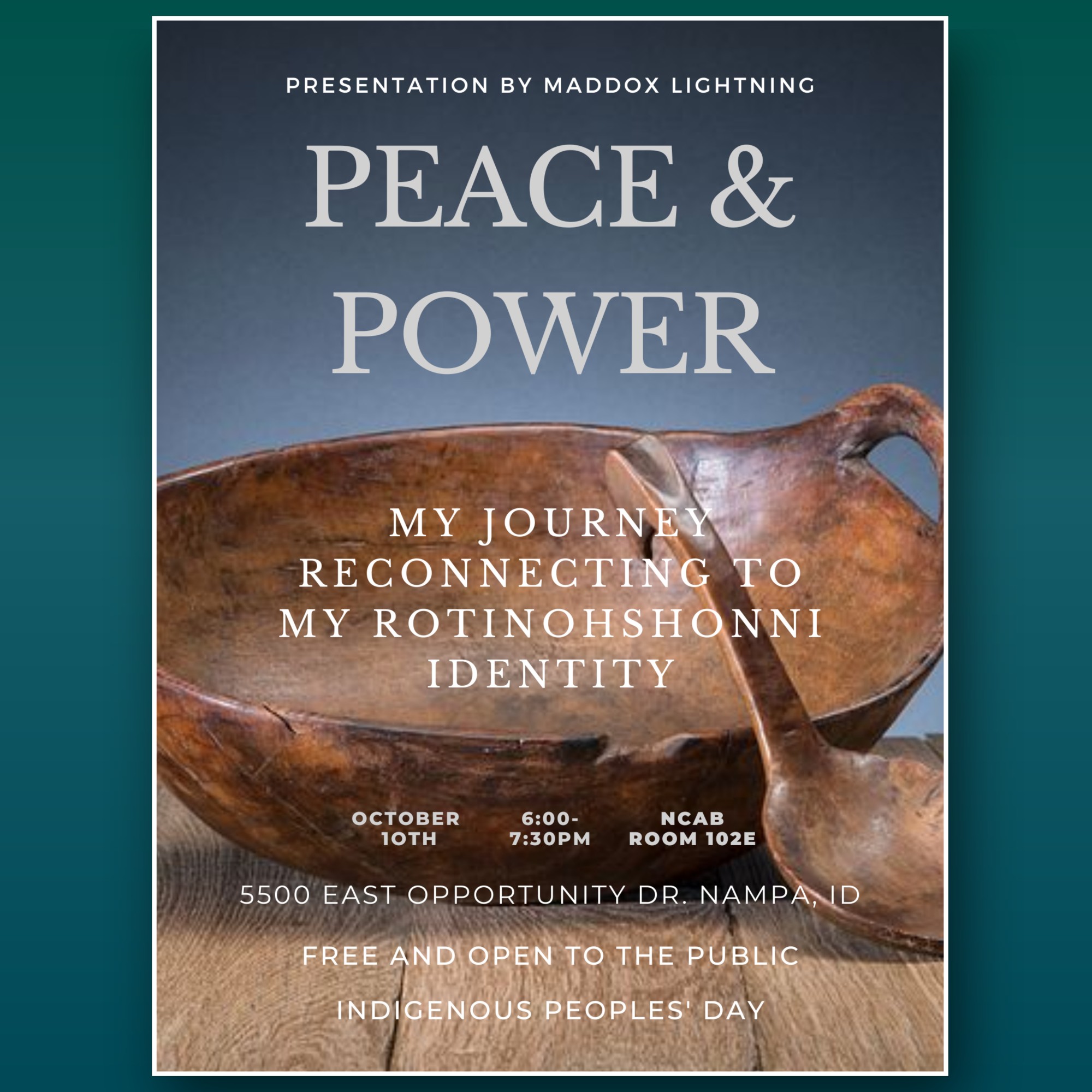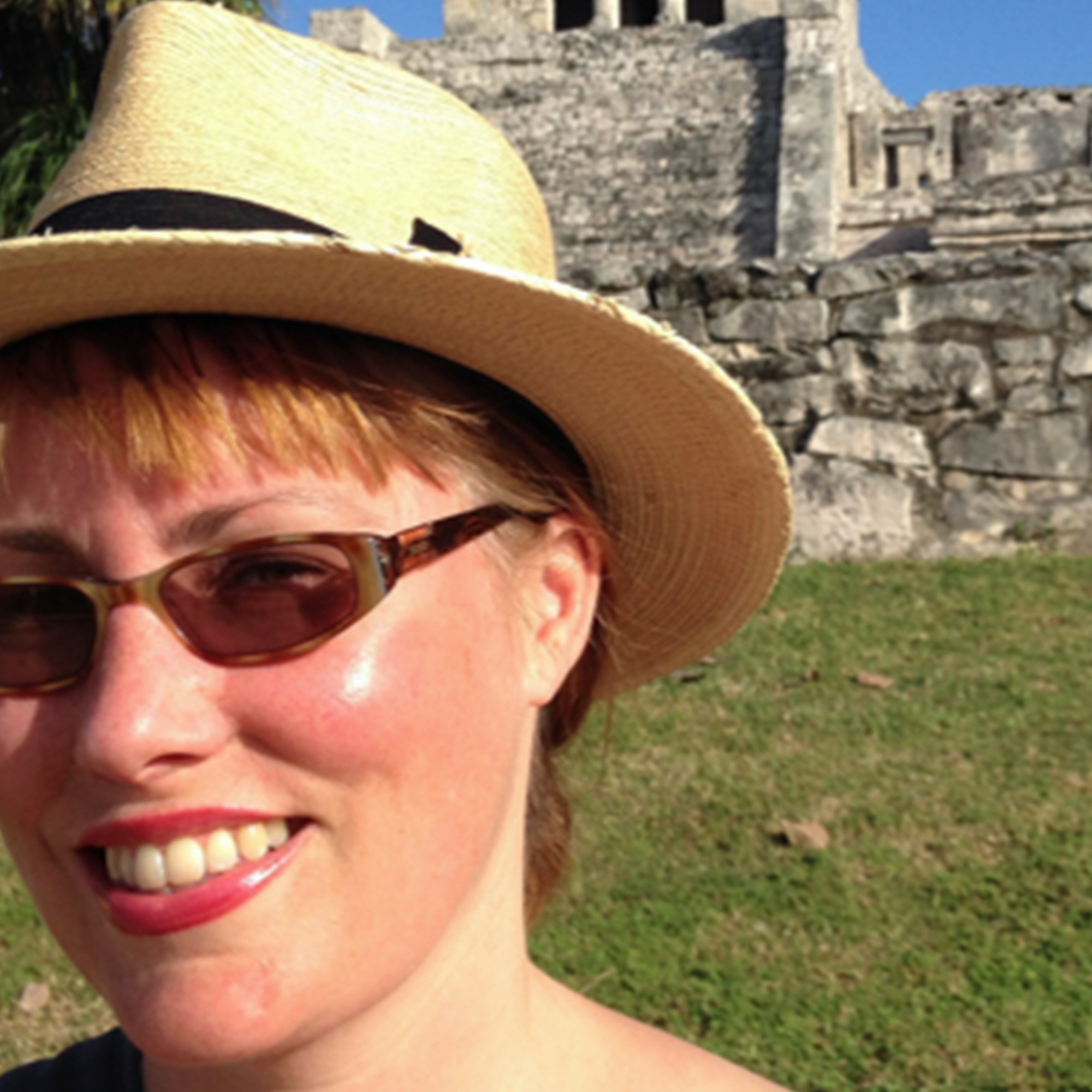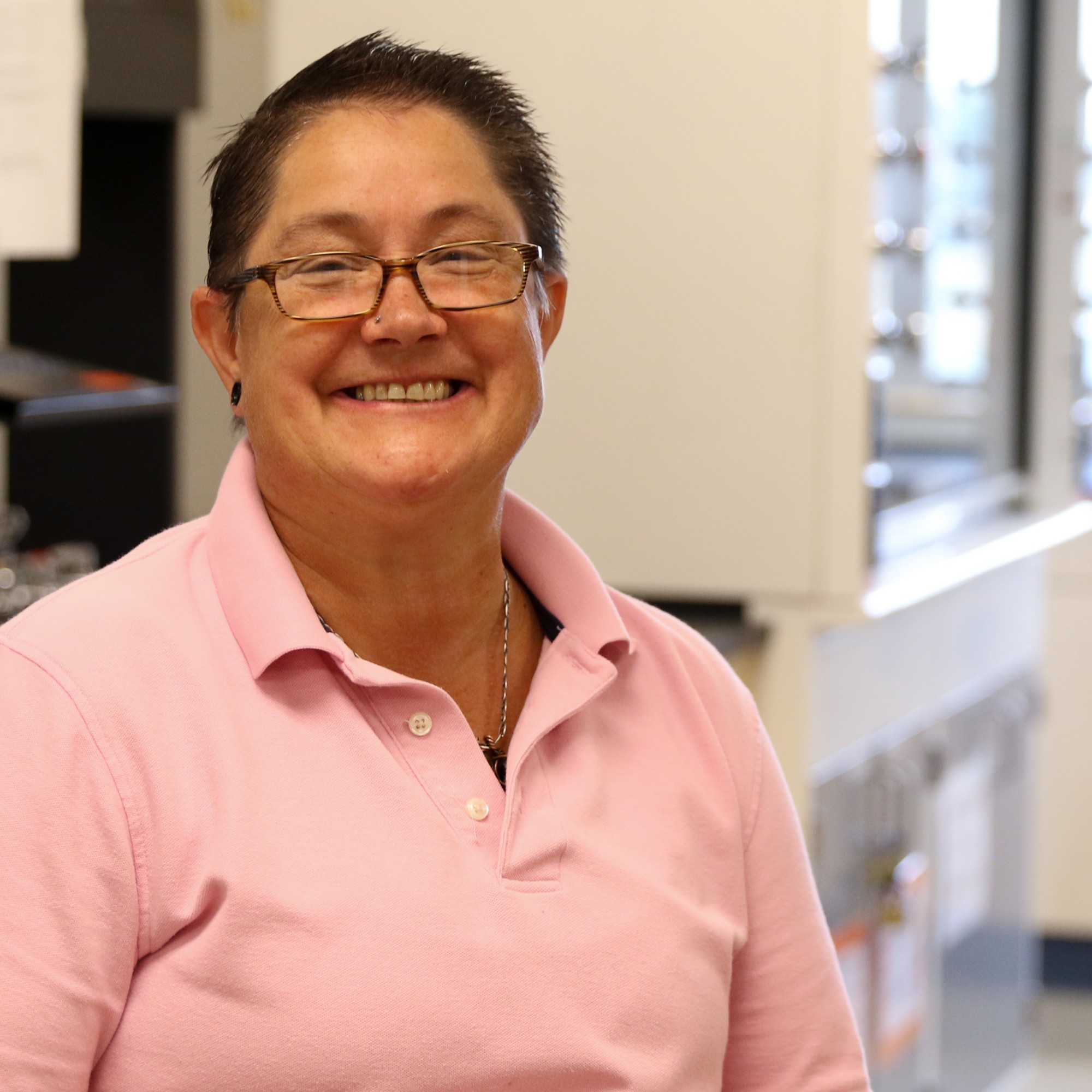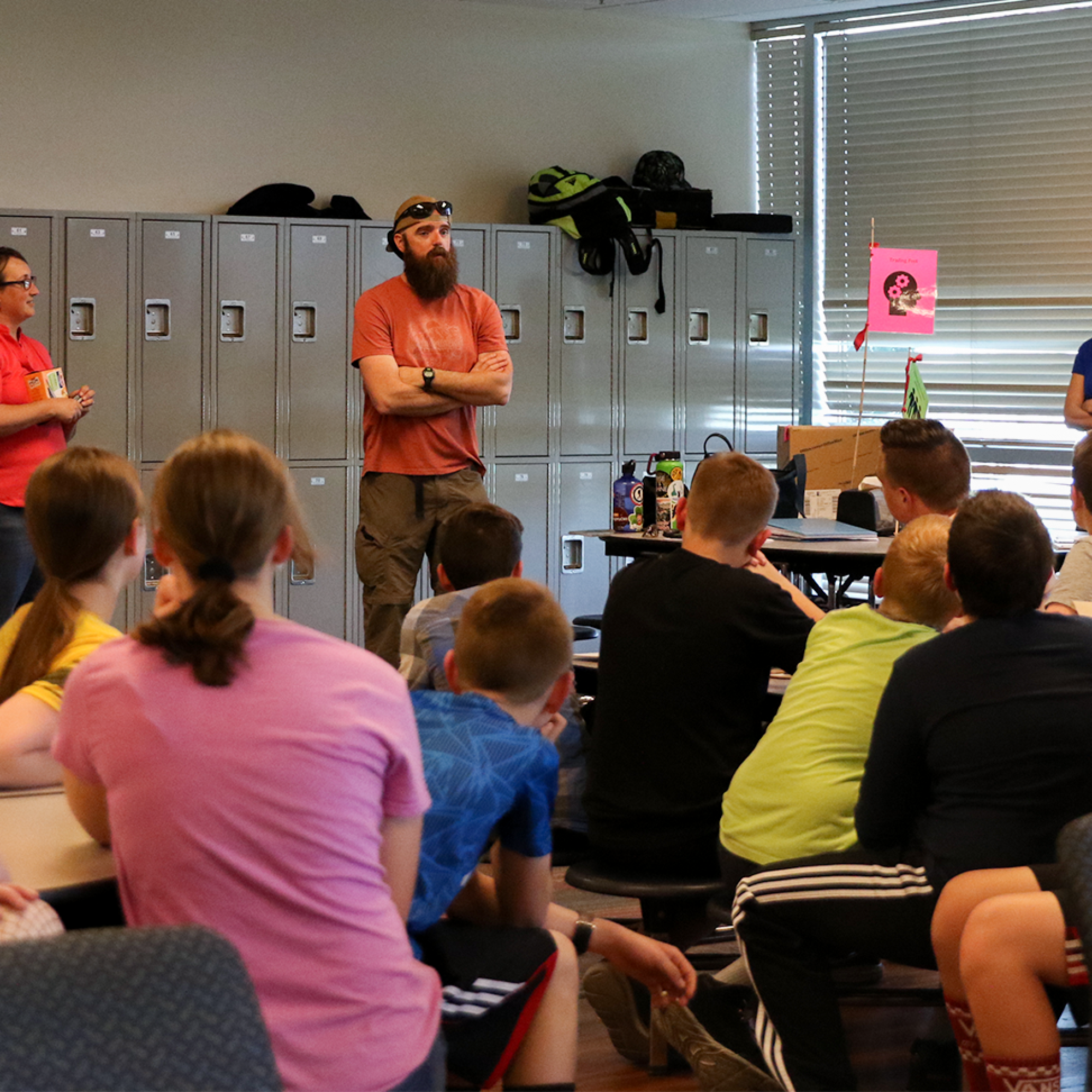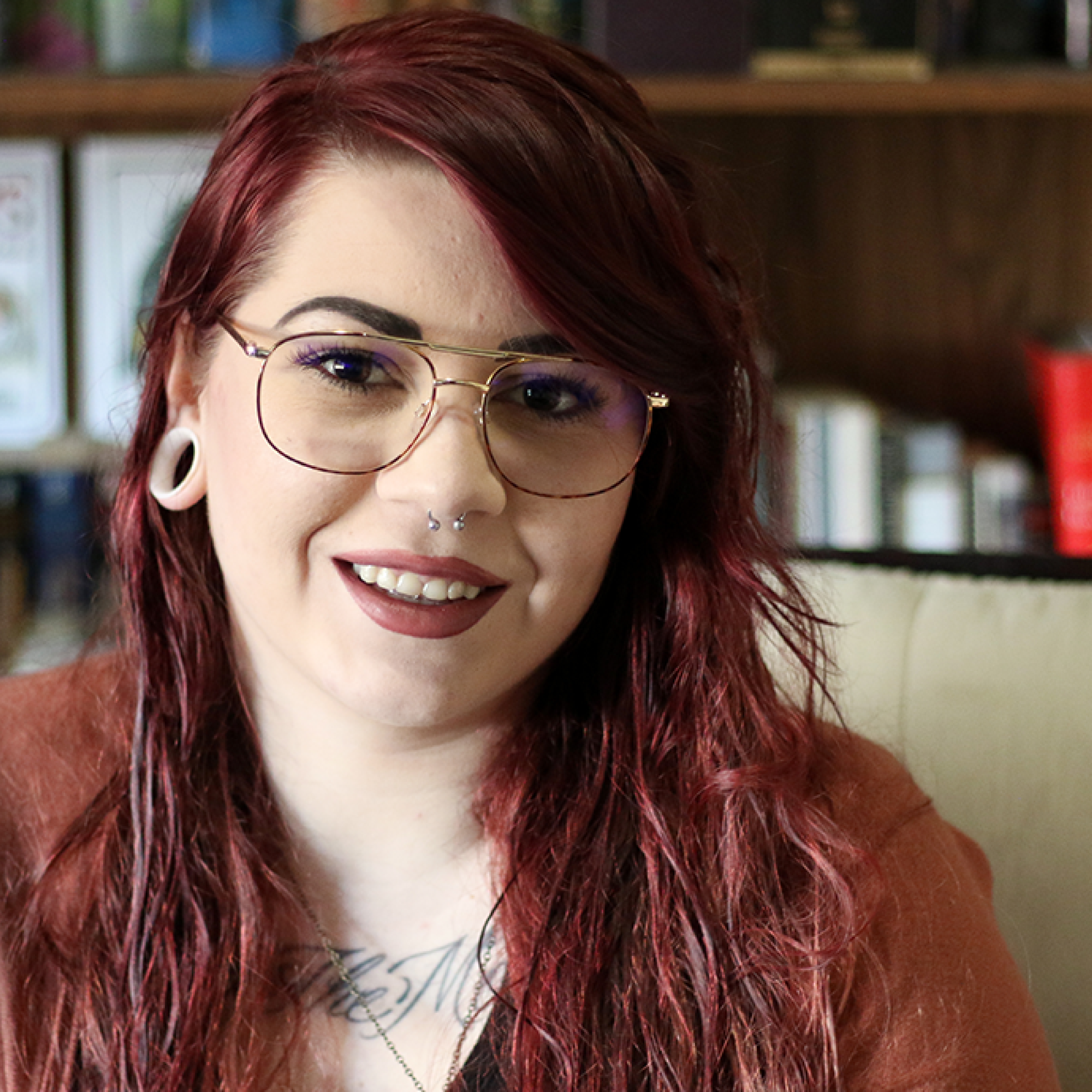Join College of Western Idaho as we honor Indigenous Peoples Day at the Nampa Campus Academic Building Monday, Oct. 14, at 7 p.m.
Read more about Commemorate Indigenous Peoples Day at CWIAnthropology
Explore Human Cultures and Histories Through a Holistic Approach
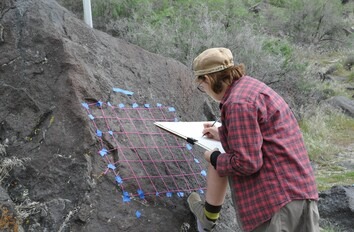
Program Overview
Picture yourself unlocking the mysteries of human cultures at College of Western Idaho (CWI). In the Anthropology program, you are not just learning about diverse societies; you are actively engaging with the rich tapestry of human history and contemporary life. Here, you will explore human diversity and complexity through a holistic approach, learning to critically engage with various cultures and appreciate the interconnected relationship between humans and their environment.
Your journey at CWI is further enriched by the opportunity to join the Anthropology Club, where you can connect with peers, engage in thought-provoking discussions, and participate in fieldwork and cultural activities. Not just about academic enrichment the Anthropology Club a gateway to building relationships, developing leadership skills, and immersing yourself in the field of anthropology. With online and in-person options, every student has access to a comprehensive and supportive learning environment.
Degree or Certificate Type
Associate of Arts
Fully Online
Cost
Additional cost may apply.
Time to Complete
2 years
Primary Locations
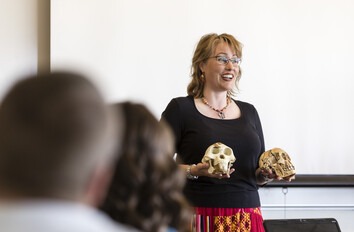
Learning Opportunities
- Dive into Diverse Human Societies: Explore the variety and depth of human cultures and histories.
- Anthropology Club Involvement: Engage with the Anthropology Club for networking, fieldwork, and cultural experiences.
- Develop Research & Analytical Skills: Sharpen your ability to ask critical questions and analyze data.
- Prepare for a Globalized Career: Lay the groundwork for diverse career paths in cultural resource management, academia, and beyond.
- Flexible Online Learning: Take advantage of the flexibility and convenience of online program offerings.
Enhance Your Experience
Your experience in the Anthropology program at CWI provides you access to national organizations to enhance your educational experience:
- Lambda Alpha National Anthropology Honor Society: fellowship, mentoring, and scholarship opportunities
- Society for Anthropology in Community Colleges: networking, mentoring, national conferences, and award opportunities
Areas of Study
Degrees & Certificates
Anthropology – Associate of Arts Degree
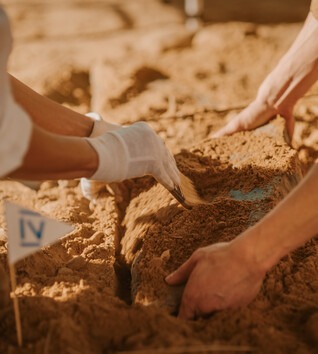
Career Opportunities
Postsecondary Teachers
1063
Annual Openings*
$35.10
Hourly Median Wage*
$73,008
Annual Median Salary
18.28%
Growth (2025 – 2035)*
Managers, All Other
All managers not listed separately.
346
Annual Openings*
$30.48
Hourly Median Wage*
$63,398
Annual Median Salary
18.26%
Growth (2025 – 2035)*
Anthropologists and Archeologists
Study the origin, development, and behavior of human beings. May study the way of life, language, or physical characteristics of people in various parts of the world. May engage in systematic recovery and examination of material evidence, such as tools or pottery remaining from past human cultures, in order to determine the history, customs, and living habits of earlier civilizations.
11
Annual Openings*
$33.75
Hourly Median Wage*
$70,200
Annual Median Salary
10.62%
Growth (2025 – 2035)*
*Data sourced from Lightcast™, a labor market analytics tool, and limited to the state of Idaho. Contact CWI Institutional Research for questions regarding this data. Career pathways may require further education beyond CWI.
Testimonial Carousel

Admissions
Step 1
- Apply to CWI.
- Choose Anthropology as your major.
Step 2
- Complete the Free Application for Federal Student Aid (FAFSA).

Cost & Aid
As a student in this program, you may be eligible for financial aid and scholarships.
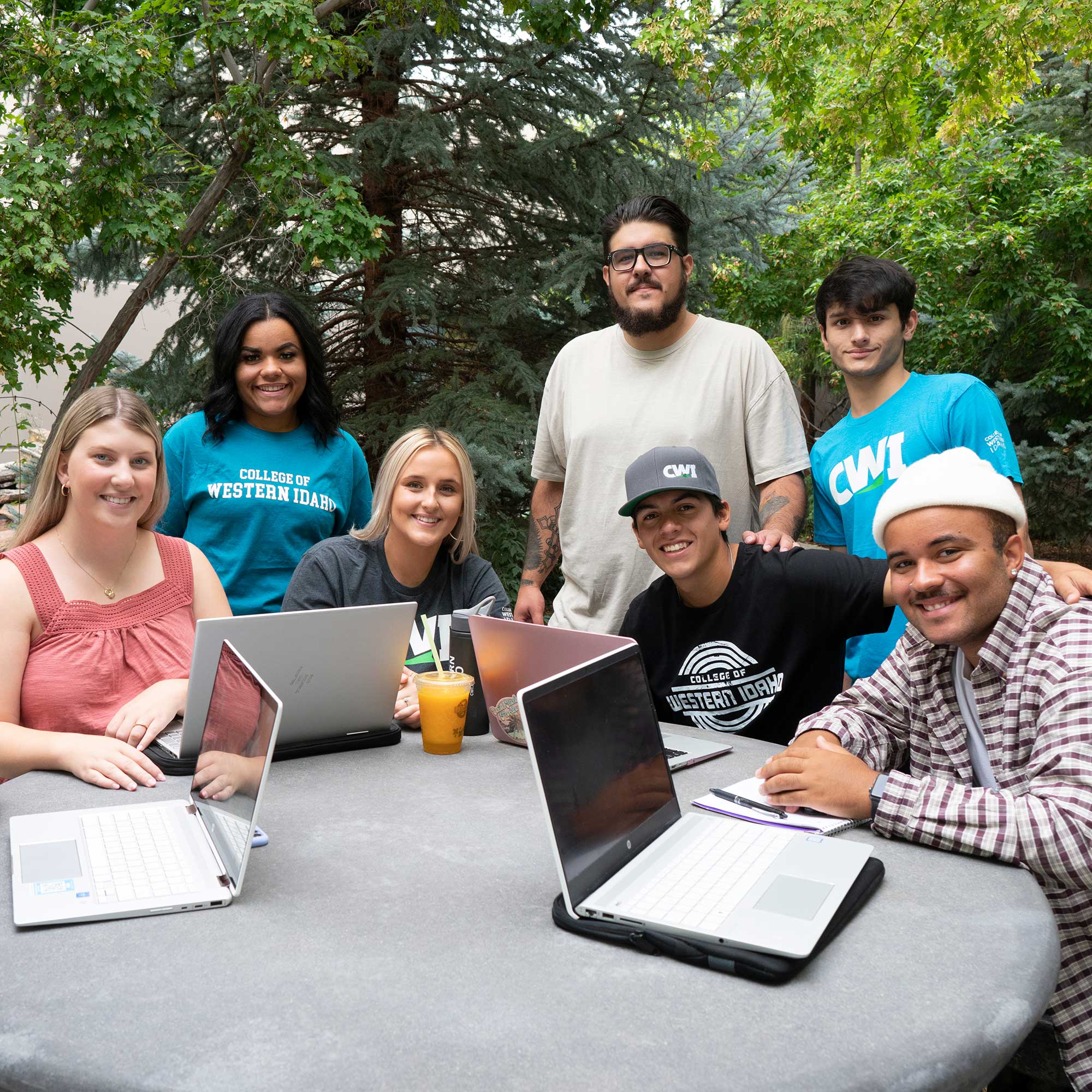
Enrichment Opportunities
Enhance your academic experience, expand your knowledge, reach your goals, and celebrate your achievements.

Advising
Already a student? We are here to help you navigate your educational journey, connect you to academic and support resources, and achieve your academic or career goals.

Transfer Information
Plan ahead for a smooth transition to a four-year college or university.
Clubs
Explore and study the various aspects of human beings and discover your interests and niche in the field of anthropology in College of Western Idaho's Anthropology Club. Through participation in field trips, interactive events, and guest speakers, involvement in this club can help broaden your perspective of the study of anthropology.
News
Learn more about how the ancient Maya constructed their buildings, temples, and other architecture at a guest presentation hosted by CWI’s Anthropology Club and program.
Read more about Archaeological Experiments in Ancient Maya Stone QuarriesFormer tribal Chairman of the Northwestern Band of the Shoshone Nation, Darren Parry, visited College of Western Idaho for a presentation on the 160th anniversary of the Bear River Massacre.
Read more about Parry Visits CWI to Commemorate 160th Anniversary of Bear River MassacreCollege of Western Idaho Anthropology Club, School of Arts and Humanities, School of Social Sciences and Public Affairs, and Inclusive Excellence Committee are hosting former...
Read more about History, Healing and Re-STORY-ation: The Bear River MassacreSeventy students, professors, and industry professionals from around the Gem State were at College of Western Idaho this past weekend for the 48th Annual Idaho Archeological Society Conference.
Read more about Idaho Archeological Society Annual Conference Hosted at CWI Sees Great TurnoutCollege of Western Idaho’s Anthropology Club will host the 48th Annual Idaho Archeological Society Conference on Saturday, Oct. 22. It is free and open to the public.
Read more about Anthropology Club Hosts Idaho Archeological Society Annual ConferenceCollege of Western Idaho’s Anthropology Club has teamed up the Bureau of Land Management to connect people, culture, ecology, and stewardship and preservation of public lands and waterways to...
Read more about Anthropology Club Connecting with Younger Generation to Share Principles of Preservation, Stewardship, and MoreCWI will celebrate Indigenous Peoples’ Day on Oct. 10 with food and activities and a cultural presentation from a student who will share her own experience learning about her Indigenous roots....
Read more about Celebrate Indigenous Peoples’ Day with CWIJoin CWI Anthropology Professor, Nikki Gorrell, Tuesday, March 10, for a discussion on her fieldwork in Mayan communities.
Read more about The Maya: Past, Present, and FutureCongratulations to Kathy Guthrie, College of Western Idaho’s Staff of the Month for July 2019.
Read more about Staff of the Month—July 2019Students at Compass Public Charter School participate in College of Western Idaho Anthropology Club’s inaugural Adventure Race.
Read more about Adventure Race Brings Learning to Life"CWI empowered me by showing me I am smart, outgoing, and able to do so many more things than I thought I could.”
Read more about A Better SelfRequest More Information
Interested in learning more about this program or getting started? Fill out the information below to be contacted by a member of our team.
Connect With Us
Ready to get started? Our team looks forward to assisting you!






